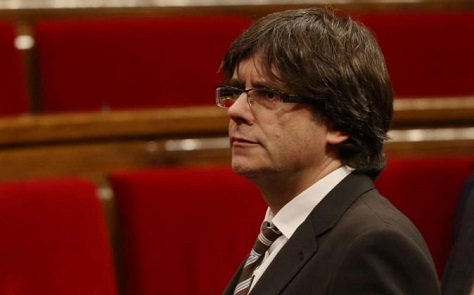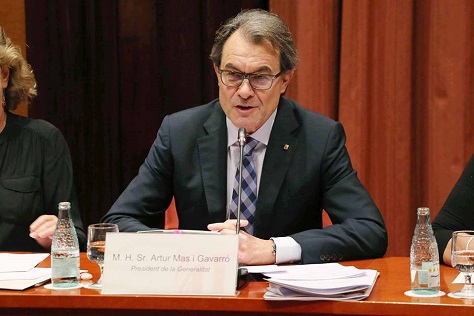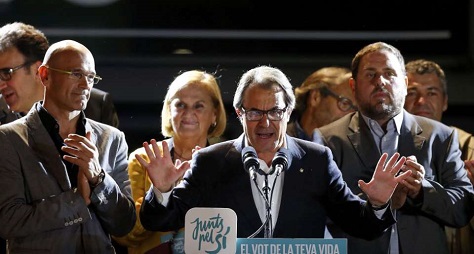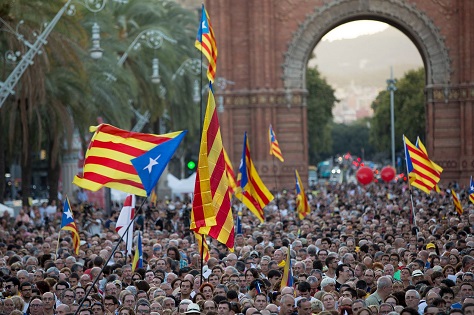
Ultimately, in the game of chicken between Catalonia’s regional president Artur Mas and the handful of radical left legislators standing in the way of forming a new executive government, it was Mas who blinked, leading the way for another Catalan moderate, Carles Puigdemont, to take the premiership in an 11th hour drama Sunday night. ![]()
![]()
On Sunday, he finally gave in, offering to step aside for the sake of winning a majority for a pan-ideological coalition committed to pushing the region’s independence from Spain within the next 18 months. In so doing, Mas acceded to the Candidatura d’Unitat Popular (CUP, Popular Unity Candidacy), the far-left group that won around 8% of the vote in the most recent September 27 elections that otherwise delivered a strong plurality to the pro-independence front, Junts pel Sí (Together for Yes).
With six seats short of a majority, Junts pel Sí, dominated by two parties, the center-right Convergència Democràtica de Catalunya (CDC, Democratic Convergence of Catalonia) and the center-left Esquerra Republicana de Catalunya (ERC, Republican Left of Catalonia) had agreed prior to the election, along with several other minor parties, that it would be Mas to lead any resulting government.
Though the CUP also embraces independence (it also rejects membership in NATO and the European Union), it didn’t formally join the Junts pel Sí coalition. Antonio Baños, the CUP’s leader, steadfastly refused to support Mas’s investiture to form a new Generalitat, the regional executive government, because his party opposes the budget cuts that Mas introduced at the regional level during Spain’s economic crisis and due to longstanding allegations of corruption surrounding CDC governments dating back decades.
By stepping down, Mas made it clear that he wasn’t willing to drag Catalans to their fourth election in five years just to cling to power.
Mas’s replacement, Puigdemont, is another CDC veteran. Though he comes from the same moderate background as Mas, he has long been among the most outspoken advocates of Catalan independence, unlike Mas. For now, at least, that represents sufficient change for Baños and the CUP to support the independence-driven government.
* * * * *
RELATED: Catalonia’s post-election future murky as Mas prioritizes power over secession
* * * * *
Increasingly, Mas used the pro-independence fervor to maintain his own grip on power, to the point that it forced a split in the CDC’s longtime two-party governing coalition, Convergència i Unió (CiU, Convergence and Union) in a bid to hold onto the premiership.
While CiU governed the region consecutively for nearly a quarter-century from the 1980s to the early 2000s, it took a markedly nationalist stand. But, for the most part, it always leaned more toward regional autonomy and not in favor of independence.
Not so with Puigdemont, however, who is much more of a true believer in the independence cause than Mas ever was. Puigdemont is a former journalist and an arts and cultural critic, but his major political breakthrough came in 2011, when he won the mayoral election in Girona, long a stronghold of Spain’s federal socialist party. Continue reading Who is Carles Puigdemont? Catalonia’s new regional president.




